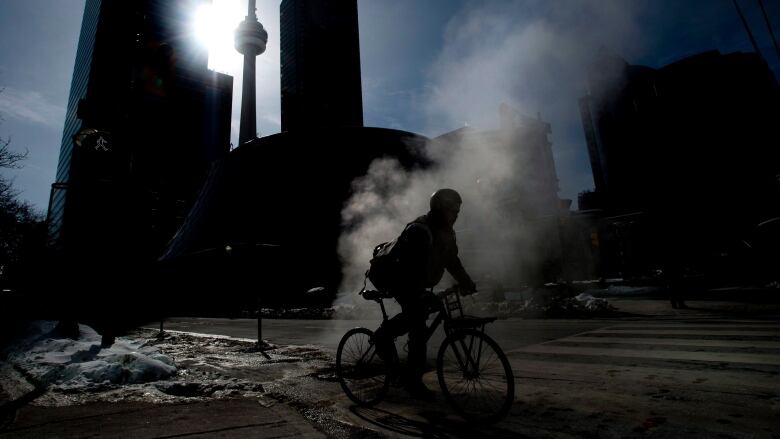City issues extreme cold weather alert as deep freeze rolls into town
Wind chill factor was -18 early Wednesday morning

The City of Toronto has issued an extreme cold weather alert as a deep freeze moves in and is forecast to stick around to the end of the week.
Dr. Barbara Yaffe, Toronto's acting medical officer of health, issued the alert early Wednesday morning and it will remain in effect until further notice.
The city issues an extreme cold weather alert when the temperature is forecast to hit -15 C or colder, or when the wind chill is forecast to reach -20 or colder.
At 6 a.m. Wednesday, the temperature in Toronto was -10 C, with the wind chill making it feel like-18. The overnight low is expected to reach -11 C. On Thursday, the forecast high is -6 C with wind gusts of up to 60 km/h, with an overnight low of -14 C. Wind-chill factors will make it feel much colder.
The alert notes that "exposure to cold weather can be harmful to your health," including hypothermia if the body's core temperature drops below 35 C. Frostbite can also lead to amputation in severe cases.
Such alerts activate special local services to help vulnerable residents, including additional shelter beds and overnight street outreach. A notice also goes out to community agencies to "relax any service restrictions" and transit tokens are made available at some drop-in centres.
Recommendations for staying safe in the extreme cold include:
- dressing in layers, ensuring the outer layer is windproof, and covering exposed skin.
- staying dry, because hypothermia risk goes up when you're wet.
- wearing wool or synthetic fabrics rather than cotton, which can't keep you warm when it gets wet.
- drinking warm fluids.
- reschedulingoutdoor activities.












_(720p).jpg)


 OFFICIAL HD MUSIC VIDEO.jpg)
.jpg)



























































































